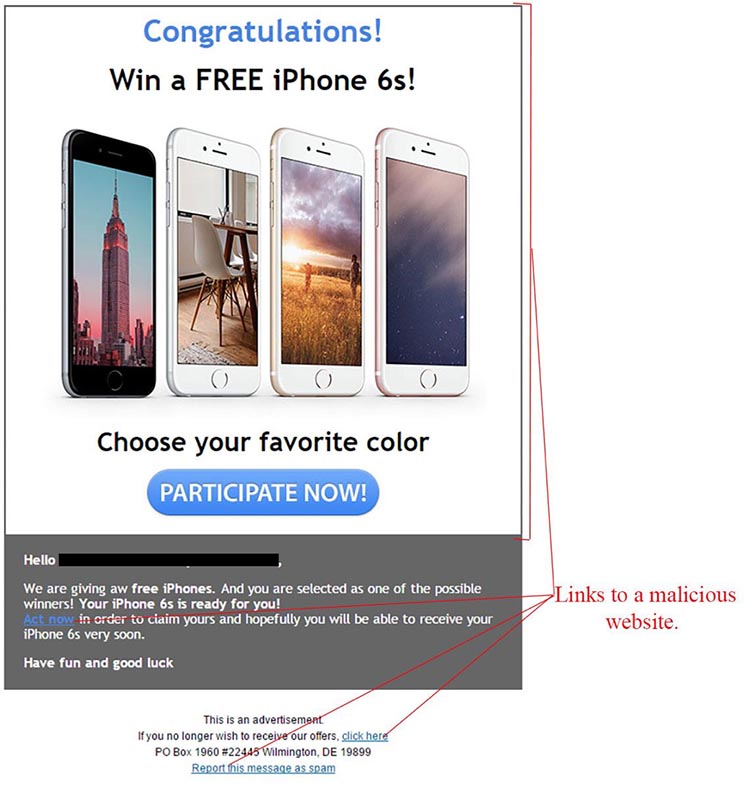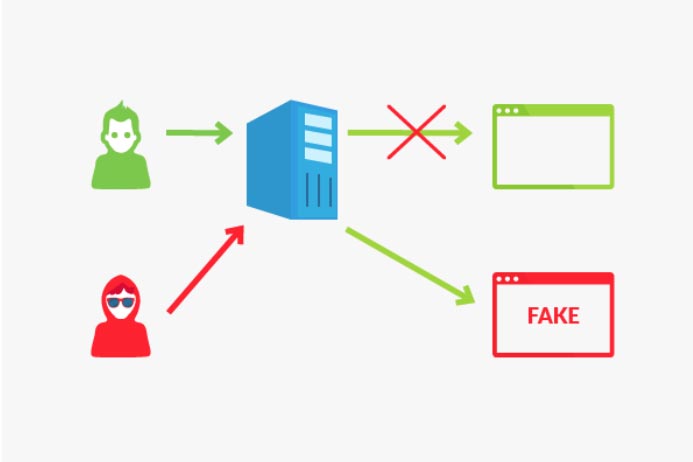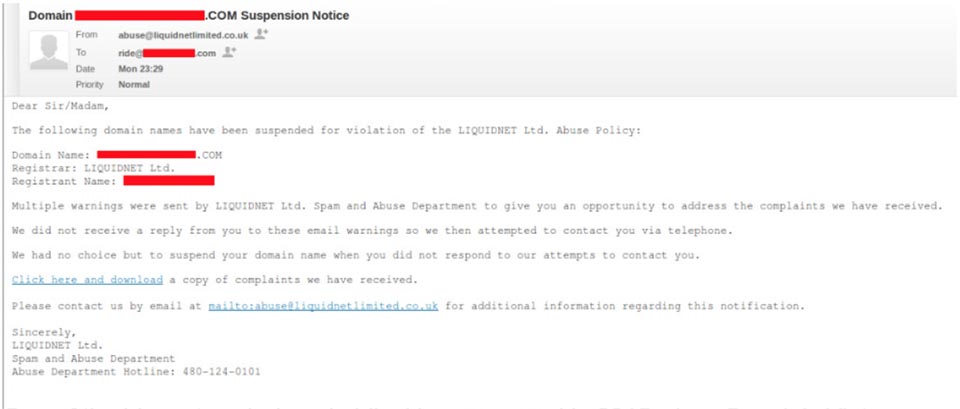Should I get privacy protection for my domain?
Your online journey begins with buying a domain name for your website. But it is just the starting point. You will have to consider a lot of other factors for protecting your website and its data from getting into the wrong hands.
Newbie website owners are unsure about the options available for website protection. If you are one of them and have ever wondered whether you need privacy protection for your domain or not, this piece of writing will help you make the right choice for your domain. I’m sure the experienced domain owners will also find some new and useful information here.
I’ve explained the meaning and relevance of domain privacy to help you decide whether you should get privacy protection for your domain or not.
What is Domain Privacy Protection?
Privacy protection in the domain registration world refers to keeping your personal information private from the public. So, you must be wondering, ‘how buying a domain makes your personal information public?’ You will notice that your domain registrar asks for your personal information while registering your domain.
This information is publicly displayed by a domain information database called Whois for helping the general public find out the contact details of a website owner for useful purposes.
The US Department of Commerce (DOC) has directed a non-profit private corporation, Internet Corporation for Assigned Names and Numbers (ICANN) to manage the domain name assignment and maintain a record of domain name owners for the public.
ICANN, therefore, maintains the Whois database that carries the personal information of all domain name owners. Your domain registrar is required by law to receive and pass your details like name, email, phone number, etc. to ICANN so that a Whois record for your website can be maintained.
With changing times, people have started misusing this useful feature, and its very purpose of helping the general public has been forgotten. That is why website owners tend to get privacy protection for their websites so that their personal or business information is not misused in any manner.
Threats of not getting privacy protection for your domain
Getting privacy protection is completely optional while purchasing a domain. When you opt not to receive privacy protection for your website, all your private details are publicly available.
Since your domain marks the beginning of your website’s journey, your online presence doesn’t remain anonymous. Anyone from any part of the world can find out your phone number, email, and address including even the criminals. Your personal information can be sold and purchased quite conveniently over the internet.
Who knows the recent allegations of selling your information to advertisers against the tech giants Google and Facebook might be true! It is, therefore, necessary to keep all your details private while purchasing a domain because of the following threats it otherwise poses:
Marketing and Spam emails
When your email is displayed publicly, you are bound to receive a lot of unnecessary marketing emails. Many individuals or businesses tend to extract specific information like emails from websites like Whois for using it to their advantage.
Such pushy marketing emails end up as spam in your inbox and might be frustrating when received in large quantities. Pushy marketeers can trick you into buying something you regret later. Spammers might also extract money from you in many other ways.
For instance, here is a screenshot of a spam email that claims to give away a free iPhone 6s and asks for your participation for a chance to win it. Along with the attention-grabbing picture, the email includes web links that take you to a malicious website.
You will be asked a few questions on the landing page to make the offer look genuine. But a single click anywhere on that website brings malware infection to your system. Have a look at it:

Stalked by Competitors
Since all your personal information is publicly available, your competitors can constantly keep an eye on your activities. From the Whois database, they will know everything about your whereabouts. You might be stalked by your competitors if they wish to receive information about your sellers or buyers. What if they make a more lucrative offer to your people? You might lose your sellers, buyers, or your best employees.
Identity Theft
Identity theft refers to stealing someone’s identity for committing unlawful activities. When your personal information is available for the general public, a criminal might use your details to commit crimes in your name by stealing your identity.
Such dubious activities might bring in trouble for you and result in the loss of a good reputation that you have built over many years.
Domain Hijacking
The WHOIS database reveals your administrative email that can be used by unauthorized individuals to hijack your domain. Someone can take full control of your domain for one’s benefit. Such domain hijacking is performed to take your domain offline or transfer it to another person.
One of the biggest such domain hijackings occurred in 2015 when Google’s Vietnam domain was redirected to a defacement page through DNS hijacking. The page it was redirected to looked like this:

Security Breaching
A security breach involves unauthorized access to your business information. With your private details on public display, it might become easier for an individual to bypass your website’s security mechanisms. As soon as a breach occurs, all your sensitive data is in the hands of the breacher who might use it to fulfill his immoral activities.
Financial Fraud
With your email, phone number, and address on display, it becomes easy for a criminal to find your financial information. Additionally, your personal information coupled with a little weakness in website security might lead to the revelation of financial details of your customers as well.
Such similar fraud was attempted on Macy’s, the American departmental store in 2019 via Magecart – a cybercrime software that injects malicious code into your website to scrape the financial information of customers. Data skimming codes can be placed on your website if an attacker gains access to it by using your personal information.
Domain Phishing
Since your email is publicly visible, an individual can send certain links to your inbox posing as your registrar. You might be taken to a website that looks quite similar to your registrar’s when you follow such links. The page that appears asks you for some sensitive information that might be used to control your domain.
Such an email generally creates a sense of urgency to make you act without thinking in detail about the whole situation. This is what a typical phishing email looks like:

Besides the above threats, the public display of your personal information might lead you to trouble in several other ways. Hackers and other criminals are always modifying their ways of committing online crimes to accomplish their evil purposes. Your email, phone number, and address should be exposed only to the people you trust and not anyone else.
Should I get Privacy Protection for my Domain?
Now that you know the situations you might have to face due to the absence of domain privacy protection, I trust you for getting privacy protection for your domain for your own good.
Though domain privacy comes at a cost, you must consider adding it to your shopping cart while registering a domain for your website. It will not only hide your personal information but also benefit you in many other ways. It is just a little price that you would be paying for safeguarding your domain and website data.
If you want to take it a step further, you can also opt for a private hosting that will protect your anonymity, and with that, you can rest assured that your personal information will remain anonymous simply because no identification is required during your domain and web hosting purchase, thanks to the payment through the cryptocurrency.
Benefits of getting Domain Privacy Protection
Domain privacy protection or Whois privacy offers many advantages to domain owners. Let us discuss them in detail here:
Protection of Personal Information
The first and foremost benefit offered by domain privacy protection is hiding your personal information from the public eye.
All other benefits originate from this main benefit offered by the privacy service. When the internet was still in its beginning stage, the details of a domain owner presented on the Whois directory were utilized by others for useful purposes.
However, with the rise in online crimes, this directory is now misused by many people all over the world. Domain privacy protection safeguards your private details from getting misused as generic contact information is displayed on Whois instead of your private one when you avail of this service.
No unnecessary sale pitches
When your email and phone number are accessible to everyone, you are bound to be contacted by pushy salesmen regularly. However, with domain privacy protection, you won’t face any such issues and your inbox will be free of unwanted marketing emails or spam ones. Additionally, you won’t be bothered by sales calls that are uncalled for.
Prevention of Domain Loss
Your administrative email is displayed by the Whois directory and can be used by someone to take control of your domain. The chances of recovering your domain from such domain hijack attacks are very less. Getting privacy protection for your domain will, therefore, prevent the loss of your domain by hiding your personal information from the public eye.
Financial Protection
As discussed above, an individual can take control of your domain from your personal information displayed by the Whois directory. An online criminal might also get hold of your website data and access the financial details of your customers.
It might result in financial losses to your customers that you will have to compensate them for. Domain privacy protection prevents you from this additional compensation cost that you might have to bear in case of any fraud.
Business Information Protection
Not only the financial information but all kinds of sensitive information can be accessed by a fraudster for his benefit. Even if you do not store the financial information of your customers on your domain, other customer data might get leaked.
Such customer information leakage might result in legal charges against your business and you might end up paying compensation in large sums to the affected persons. Losing the goodwill of your business is another price that you’ll be paying in such a scenario.
Getting privacy protection for your domain will save you from such business information leakage and prevent the legal costs that you might incur. It also prevents the loss of business goodwill as the chances of customer information leakage are reduced.
No information leakage to competitors
When you get privacy protection for your domain, your competitors are not aware of your private details like phone number and address. They cannot stalk you to know your plans and your unique ideas won’t leak before coming to the market.
Also, they won’t be able to get in touch with the people you make your business dealings with. In short, domain privacy protection prevents you from your competitors’ eyes.
How does Domain Privacy Protection hide my information?
When you receive privacy protection for your domain, your domain registrar records your personal information for legal purposes but masks it with its generic contact information on the Whois directory. In such a manner, your private details are kept safe from the public eye and you are never bothered by scammers or spammers.
Can I buy Domain Privacy later?
Of course! It’s never too late to get privacy protection for your domain. You can always get it for any domain you registered in the past. However, in such a case, there is a possibility that your personal information might have already reached the hands of spammers and scammers.
If you weren’t aware of the importance of domain privacy protection earlier and facing troubles now, I’d recommend you to get in touch with your domain registrar to make changes to your personal information in the Whois register and get privacy at the same time so that your new contact details are not displayed publicly ever.
Final Thoughts
I feel that entering the online world is as easy as planting a tree but protecting it from criminal minds demands much more protection than successfully growing a tree.
Not getting privacy protection for their website is one of the biggest mistakes newbie website owners make while entering the online world. Experienced domain owners, however, learn from their mistakes and find ways to protect both their domain and personal details.
With that said, I would like to ask you whether you have ever faced any issues with the privacy protection of your domain in your initial years online? If you are a newbie, what are your thoughts about domain privacy protection or the display of your contact details publicly by ICANN?